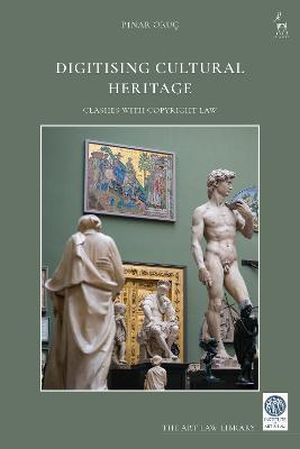We are now closed for the Christmas and New Year period, returning on Monday 5th January 2026. Orders placed during this time will be processed upon our return on 5th January.

This book investigates the role played by copyright on the digitisation of cultural heritage from three angles: the theoretical differences between cultural property law and copyright; a comparative analysis of the EU, UK, and US; and analysis of current practices and concerns, based on empirical research.
As heritage digitisation projects become increasingly common for purposes such as preservation and access, the impact of copyright is also becoming more problematic. In order to provide a full and current picture of the copyright problem, the book first introduces the reader to the debates on the scope and ownership of cultural heritage and provides an overview of the copyright implications of the digitisation process and newer uses, including 2D and 3D scanning; virtual and augmented reality; text and data mining; and artificial intelligence.
The author then divides the main critical analysis into three parts, referred to as the 'clashes with copyright'. The first, clash in theory, lies between cultural property law and copyright justification theories. The second clash is in the different legal approaches to digitising in-copyright, public domain, orphan, out-of-commerce and unpublished works in the chosen jurisdictions, focusing on the relevant rights and defences. The third clash is in the interests of stakeholders, based on public reactions to existing projects and cases, supported by interviews with heritage professionals engaging in digitisation.
By placing itself in this particular intersection of law, heritage, and technology, the book will be of interest to both intellectual property academics and cultural heritage professionals.